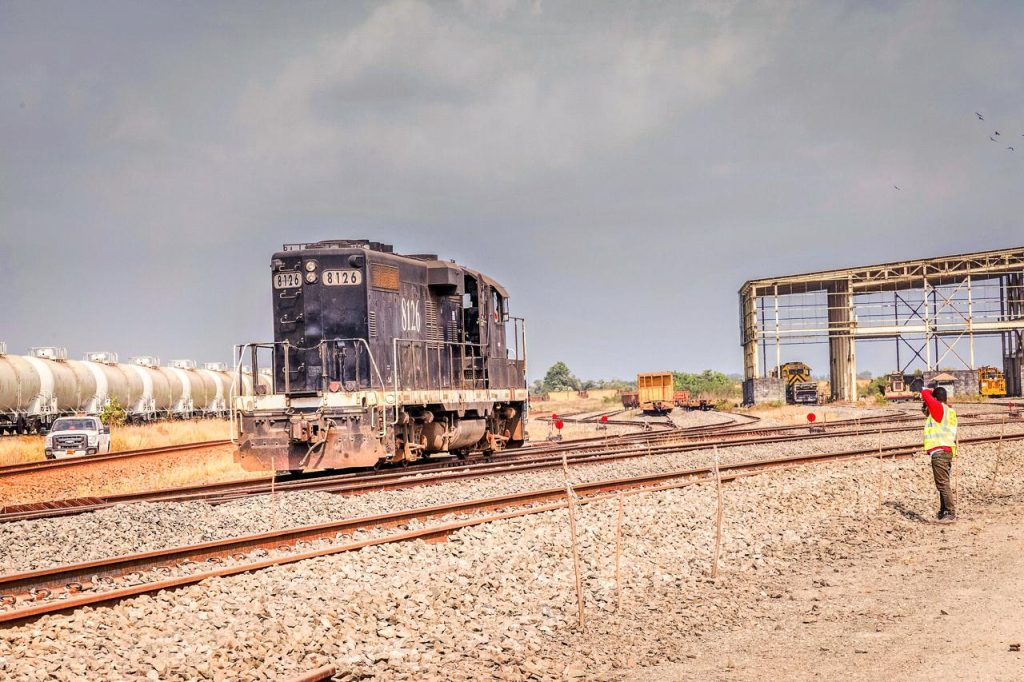Ivanhoe Liberia, formerly known as High Power Exploration (HPX), is engaged in a calculated campaign to gain indirect control of Liberia’s crucial Yekepa-Buchanan railway, raising serious concerns about national interests and investment integrity. Instead of directly investing in the railway’s development or operation, Ivanhoe is leveraging its influence within the Liberian government, particularly within President Weah’s inner circle, to manipulate the evolving railway governance framework to its advantage. The company’s strategy revolves around promoting a seemingly open and competitive international tender process for rail operatorship, while simultaneously maneuvering to ensure that one of its preferred foreign partners secures the contract. This orchestrated approach allows Ivanhoe to potentially reap the benefits of the railway’s operation without bearing any of the financial burdens associated with its development or maintenance.
Central to Ivanhoe’s scheme is the proposed framework being developed by the National Rail Authority (NRA). This framework, ostensibly designed to regulate rail usage, ensure equitable access, and collect user fees for the government, is being subtly shaped to favor Ivanhoe’s agenda. While publicly championing the multi-user model as a solution to perceived monopolistic practices, Ivanhoe is privately working to install either Thelo DB of South Africa or the Railroad Development Corporation (RDC) of the United States as the railway operator. Both companies, reportedly closely aligned with Ivanhoe’s executive network, lack any significant investment history in Liberia and their selection would effectively grant Ivanhoe preferential access to the railway, undermining the existing operator, ArcelorMittal Liberia (AML). AML, which has invested substantially in Liberia’s mining and transport infrastructure, including the railway, operates under a Mineral Development Agreement (MDA) that grants it user-operator status.
Ivanhoe’s maneuvering poses significant risks to Liberia’s economic and investment landscape. Awarding the railway’s operation to a politically favored entity, chosen through backroom dealings rather than transparent and competitive processes, undermines Liberia’s credibility as a reliable investment destination. Furthermore, neither Thelo DB nor RDC possesses a proven track record of investment in Liberia’s railway infrastructure, raising serious doubts about their capacity and commitment to maintain and expand the railway, a critical national asset. This uncertainty threatens the long-term functionality and viability of the railway, potentially jeopardizing Liberia’s economic development.
The stark contrast between Ivanhoe’s actions in Liberia and its activities elsewhere further underscores the company’s opportunistic approach. While actively pursuing rail development projects in other countries, including a rail spur line in the Democratic Republic of Congo and involvement in the Lobito Atlantic Corridor in Angola, Ivanhoe has consistently avoided making similar investments in Liberia. This discrepancy raises questions about the company’s true intentions, suggesting a focus on acquiring existing assets through political manipulation rather than contributing to Liberia’s infrastructure development.
Adding to the growing skepticism surrounding Ivanhoe’s operations is the highly publicized but largely dormant Liberty Corridor project. Announced in early 2024, the project, a purported $5 billion infrastructure initiative involving a heavy-duty railway, a deep-water port, and other associated developments, has shown little tangible progress. The lack of feasibility studies, environmental assessments, and construction activity, coupled with the silence of key partners like Guma Africa Group, casts doubt on the project’s seriousness. Many observers suspect the Liberty Corridor announcement was a strategic maneuver designed to pressure the Liberian government into ceding control of existing infrastructure to Ivanhoe.
Ivanhoe’s strategy in Liberia represents a significant threat to the country’s economic future. By manipulating the regulatory framework and pushing for the installation of a proxy operator, the company seeks to gain control of a vital national asset without making any substantial investment. This approach undermines Liberia’s investment credibility, jeopardizes the long-term viability of the railway, and potentially deprives the Liberian people of the benefits that could accrue from responsible and transparent infrastructure development. The Liberian government faces a critical decision: protect national interests and uphold the rule of law or succumb to political pressure and allow foreign actors to compromise the country’s mining and economic future. The consequences of this decision will have far-reaching implications for Liberia’s development trajectory.


